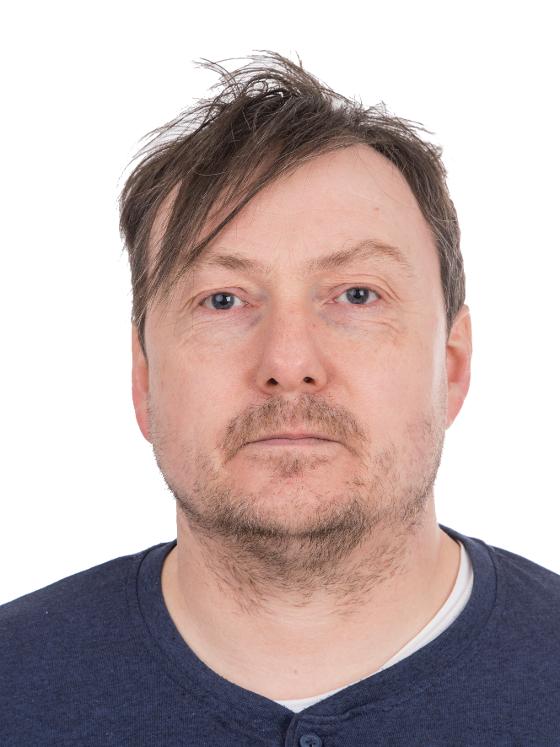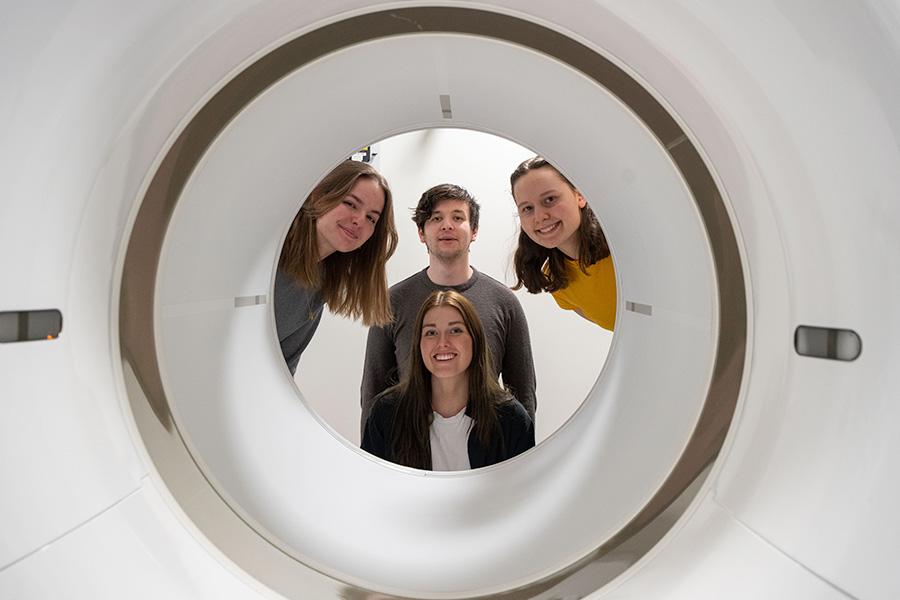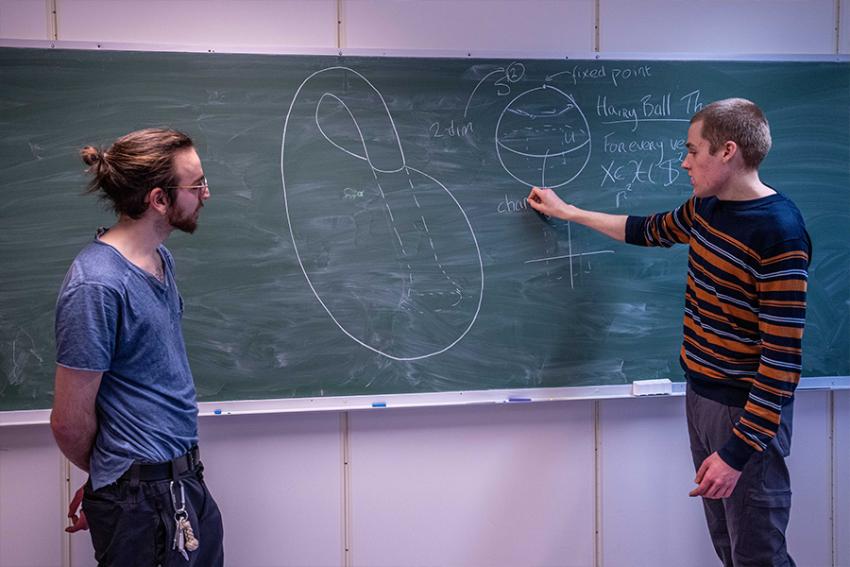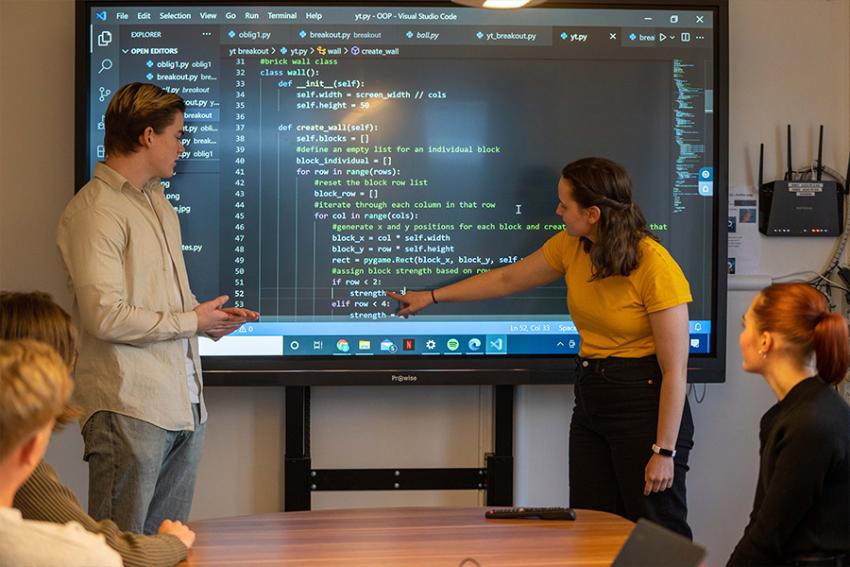The four-year master’s program in Bodø offers a hands-on, international approach to computer science. With strong ties to research and industry, students focus on applied problem-solving in close collaboration with the Tromsø department. Ideal for those seeking practical experience and interdisciplinary learning in a dynamic academic environment.
Bachelor’s degree (180 ECTS) or equivalent qualification, with a major in Computer Science of minimum 80 ECTS.
Applicants must have a minimum grade average comparable to a Norwegian C (2,5) in the ECTS scale, see the UiT webpage for International admissions for more information on how the point average is calculated.
Applicants with education from non-Nordic countries must document English language proficiency. You will find more information on English language requirements on the UiT webpage for International admissions.
Admission capacity:
10 places
Applicants from Norway or Nordic countries:
Her finner du all informasjon knyttet til søking og opptak.
Applicants within EU/EEA/Switzerland (except the Nordic countries):
You will find more information about international admission here.
The program is not available to applicants from outside the Nordic countries and the EU / EEA / Switzerland (Non EU / EEA applicants).
- Nordic applicants: 4029
- EU / EEA / Switzerland applicants applicants: 7107
Program description
The study programme has a methodological and realist approach, with emphasis on how to plan and realize small scale research projects in selected application areas.
Mandatory topics include software architectures of large, distributed, data-intensive systems, practices in modern software engineering, and methodology and tools for small-scale informatics research projects in realistic application domains. The domains depend on student interest and university collaborating partners.
The programme also provides elective courses from areas such as artificial intelligence, applied machine learning, medical informatics, or energy informatics, according on the student´s choices.
Upon completing this master programme, you will have a thorough research-based foundation for practicing computer science in industry, research and public services. You will be able to analyse problems and work efficiently towards solutions in an organized manner, independently or in teams. You will be able to collect and analyse relevant metrics characterizing your problem and adapt to the related limitations and necessary changes. You can successfully demonstrate the feasibility of a solution through implementing key parts and will be able to design for system quality and lifetime reliability. You will learn about social and ethical issues that apply to computer science, and how to consider these during your professional career.
The study programme consists of mandatory courses in computer science yielding 40 ECTS credits and 20 ECTS credits of elective courses. The electives may be in computer science or other sciences. The programme concludes with a master thesis of 60 ECTS credits.
Learning outcomes
Knowledge
The candidate has…
- a broad solid foundation in computer science
- considerable depth of understanding of a selected area of specialization
- a deep understanding on state-of-the-art distributed software architectures
- a solid knowledge about risks and threats in computer systems and their related security measures
- a theoretical insight into software quality, maintainability and reliability.
- a solid understanding of system and application development relevant to the chosen specialty
- knowledge and methodological insight to perform basic research design, evaluation, implementation, and dissemination of small computer science research projects in a selected problem area
Skills
The candidate can…
- formulate viable research questions and hypotheses, perform research surveys and do result analysis and evaluation
- communicate with domain experts and users
- analyse a scientific problem and select and employ effective research methods
- participate in multidisciplinary research and innovation projects
- work independently on a significant non-trivial scientific problem
- plan, organize and execute the work required to solve the problem and adapt to changes and limitations.
- demonstrate the feasibility of the solution by implementing key parts
- collect and analyse relevant metrics characterizing the problem and the solution
- write a well-structured and clearly formulated report describing the thesis work and reflecting on its results
General competence
The candidate …
- can communicate and contribute effectively, orally and in writing, within the field, and with the public as well as experts in other fields
- can contribute to the development of computer science as a dynamic discipline under the influences of advances in theory, changes in technology, and in application areas
- can pursue life-long learning and development; and
- is aware of relevant social and ethical issues and apply this awareness to their professional conduct
Job prospectives
Here’s a list of popular career paths in computer science:
- Software Developer – Build apps, websites, and systems.
- Data Scientist – Analyze data to find trends and make predictions.
- Cybersecurity Analyst – Protect systems from digital threats.
- Machine Learning Engineer – Create AI models that learn from data.
- Game Developer – Design and code video games.
- DevOps Engineer – Automate and streamline software deployment.
- Product Manager – Lead tech product development and strategy.
Degree Name
Master of Science in Computer ScienceAccess to further studies
Upon successful completion of the degree, and satisfactory grades, students may be qualified for admission to a PhD program in Science.
Relaterte yrker
Studieplan
Language of instruction
The language of instruction is English and all of the syllabus material is in English. Examination questions will be given in English, but may be answered either in English or a Scandinavian language.
The Master's thesis may be written in either English or a Scandinavian language.
Teaching and assessment
This part-time study programme is a four-year programme covering 30 ECTS each year. It is particularly suitable for students who want to achieve a master’s degree in combination with for instance a regular job.
A successful learning environment depends on the combined efforts of the students. It is important that each student takes an active role, is present in teaching activities and contributes to the learning environment, both in organized teaching and otherwise during the gatherings where the students cooperate and largely learn from each other.
The study programme offers flexibility in the following way:
Courses will consist of a combination of
- Streamed and recorded digital teaching made available for the students to follow flexibly from any location at a suitable time.
- Up to two mandatory physical gatherings in Bodø per semester.
- Co-working in groups – with digital support.
Most courses are intensive and project oriented. In group work sessions, students are expected to be active in discussions of issues in the subject matter.
Students are expected to work with programming in their own facilities or in laboratory facilities provided by the CS department. This is where compulsory assignments are solved to acquire practical skills in designing, building and maintaining computer systems, either individually or in teams with other students.
Mandatory coursework is usually expected in each course. Mandatory assignments must be approved for access to the final exam in a course.
Examination and assessment may vary between courses, from written examination to project work reports, presentation of scientific work or oral examination. It may also consist of a combination of these methods. Written examinations require physical attendance in Bodø and/or Tromsø.
In addition to collaborating with other informatics students, the students may also work with researchers and professionals from other areas, e.g. areas where technology is to be applied.
Academic staff teaching at the study programme are active researchers. The courses are based on relevant research and are related to the department's research activities. As a student, you will get to know the projects and also be able to engage in projects along the way.
Master theses are often part of a research project. In that case, the research group will provide a working community. The master’s thesis may by agreement also be conducted in, or in cooperation with, a company or other organization outside the university.
During the work on these assignments, individual guidance is provided from the department's academic staff.
There are several possibilities for exchanges abroad. The exchange period depends on your individual study plan, and should be planned in collaboration with the student advisor and the student’s supervisor.
Studiesteder du kan utveksle til
Terje Fallmyr
Studieleder og studieprogramansvarlig, bachelor og master informatikk i Nordland (Mo og Bodø)
Jan Fuglesteg
StudierådgiverAndré Henriksen
Førsteamanuensis, Nestleder IFIAndre studier du kanskje vil like
Følg @uitstudent på Instagram eller TikTok for å få et enda bedre innblikk i hvordan det er å studere på UiT. Her viser studentene fram sin studiehverdag, deler tips og nyttig informasjon, og du kan stille spørsmål om alt du måtte lure på.
Sjekk også @uitnorgesarktiske på Instagram eller TikTok for info om studier, jobbmuligheter og forskning.






